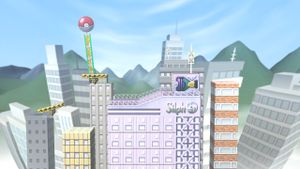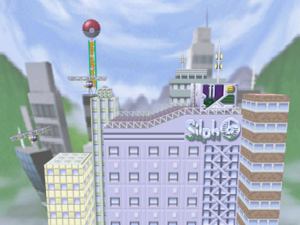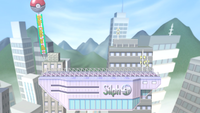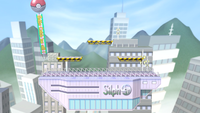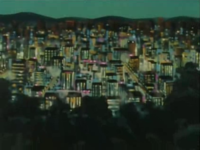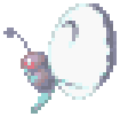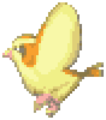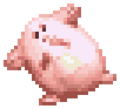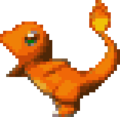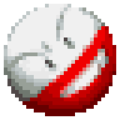Saffron City
| Pokémon Red Version & Pokémon Blue Version Saffron City | |
|---|---|
 Saffron City as it has appeared in the Smash series. | |
| Universe | Pokémon |
| Appears in | SSB Ultimate |
| Availability | Starter |
| Crate type | Normal |
| Maximum players | 4 (Smash 64) 8 (Ultimate) |
| Article on Bulbapedia | Saffron City |
| “ | Wild Pokémon appear in the middle of the city to attack the fighters. It's best just to stay out of their way. | ” |
| —Super Smash Bros.'s instruction manual | ||
| “ | A stage based on Saffron City from Pokémon Red & Pokémon Blue. Pokémon appear from the doorway of the building at the center of the stage. Watch out for when Electrode appears! | ” |
| —Super Smash Blog, Super Smash Bros. Ultimate Official Site | ||
Saffron City (ヤマブキシティ, Yamabuki City) is a playable stage in Super Smash Bros. and Super Smash Bros. Ultimate. The stage is named after a city in the Pokémon series.
In Smash 64 and Ultimate, Jigglypuff is fought here for its unlocking battle.
Stage overview
Saffron City has one main platform attached to a small platform above a door. To the right is a narrow platform and to the left are two elevators (moving platforms). Between these and slightly lower than the other platforms is yet another narrow platform. There are many gaps in-between that characters and items can fall into. It is this feature, as well as the fact that it is a stage upon the tops of tall buildings, that makes it similar to the Fourside stage in Super Smash Bros. Melee.
Pokémon
Occasionally, the door of the Silph Co. building opens, and if the door has been open for a while or if a character approaches the door when it is open, one of five Pokémon will emerge from it. These Pokémon are:
- Chansey spawns eggs, just like the Poké Ball version, and heals 5% damage on contact. It's also the easiest Pokémon to knock out. It will not spawn eggs if the item spawn frequency is set to "None".
- Charmander deals 5% damage on contact, and sometimes uses Flamethrower, which functions similarly to a Fire Flower. Each flame causes 3% damage and minimal knockback. It can be KO'd with very strong attacks such as Kirby's Stone, Luigi's Fire Jump Punch, Donkey Kong's fully charged Giant Punch, and Captain Falcon's Falcon Punch.
- Electrode uses Explosion, dealing 30% damage and large amounts of knockback. It cannot be KO'd by any means.
- Porygon uses Tackle, dealing 18% damage and moderate horizontal knockback upon its appearance and 8% damage thereafter. It cannot be KO'd by any means.
- Venusaur deals 14% damage and strong vertical knockback on contact, and sometimes uses Razor Leaf to shoot out sharp-edged leaves, each dealing 3% damage. It cannot be KO'd by any means.
Additionally, some Flying-type Pokémon, including Butterfree, Pidgey, and Fearow, can occasionally be seen flying across the background. Rarely, Moltres makes its way across the background. Moltres is one of the easiest to spot of these Pokémon, as it is bright orange.
Ω form and Battlefield form
In Super Smash Bros. Ultimate, the main platform of the Ω form and Battlefield form is reminiscent of the Silph Co. building, with the floor resembling the building's rooftop and the walls resembling the building's facade. It is also the same size and shape as Final Destination and Battlefield, respectively. The design of the three soft platforms in the Battlefield form are based on the moving soft platforms of the regular form without any propellers.
Hazards Off
With stage hazards turned off in Ultimate, the door on the Silph Co. building does not open, and so no Pokémon emerge from it. In addition, the hovering platforms on the left remain stationary.
Origin
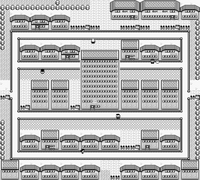
This stage is loosely based on Saffron City from Pokémon Red and Green (later released as Pokémon Red and Blue outside of Japan). Saffron City is the second largest city in the Kanto region, behind Celadon City, and one of the largest cities in the entire Pokémon universe.
The main building in Saffron City, Silph Co., is a major producer of items that benefit Pokémon trainers, such as Potions, Repels, Technical Machines, and various Poké Balls. In Pokémon Red and Blue, Team Rocket orchestrates an invasion of Silph Co. to steal their top-secret project, the Master Ball. Upon their defeat, the Saffron Gym becomes accessible. This stage takes place on top of the roof of Silph Co.; however, its design is different than how it originally appears in the Pokémon games. The other buildings, including the ones in the background, do not bear resemblance to any building in Pokémon Red and Blue’s Saffron City. However, they do in fact resemble the taller skyscrapers that are shown to make up the city in the Pokémon anime, meaning that the overall design of Saffron City in Smash was most likely inspired more by the anime than the games.
Tournament legality
This stage is commonly banned in both Japanese and American tournaments due to its overly large size promoting excessive camping, and the random Pokémon hazards disrupting gameplay, though the latter is not an issue in Ultimate thanks to the ability to remove stage hazards. Characters such as Ness or Lucas have more difficulty recovering here; it is near impossible to recover using PK Thunder between the buildings should they fall in.
After a significant period of not seeing competitive play, Saffron City was made legal for 64 tournament play at The Off-Season 2, as a charity incentive, alongside Hyrule Castle.
Gallery
Super Smash Bros.
Super Smash Bros. Ultimate
Diddy Kong charging his Peanut Popgun on the stage.
Rosalina & Luma being attacked by Venusaur's Razor Leaf on the stage.
Names in other languages
Trivia
- If the door to Silph Co. is open, Captain Falcon (with running jump and a Falcon Punch) can travel through the door frame, ending up to the left of the helipad. This flashy glitch can be used to confuse and catch opponents off-guard, though the stage's ban in the competitive setting prevents this from seeing any use in tournaments, similar to the Hyrule Jump.
- Saffron City's layout can easily confuse CPU characters, due to difficulties in properly judging walls and pits. Standing on the helipad can often result in CPU opponents SD'ing as they attempt to pursue the player.
- In the Japanese version of the game, the Silph logo is spelled as "Silf", and the banner in the background reads "Got a catch 'em all!" instead of "Gotta catch 'em all!". These were changed for the international versions.
- In the Japanese version of Ultimate, the logo now says "Sylph", and the banner is the same as the international version.
- Aside from Charmander and Porygon, the stage hazards would eventually become Poké Ball Pokémon in later Smash installments, though Porygon2 would become a Poké Ball Pokémon in Melee as well.
- Chansey is the only stage hazard to also be a Poké Ball Pokémon in Smash 64.
- This stage and Mushroom Kingdom share the longest gap between appearances in the Super Smash Bros. series, with 19 years between Smash 64 and Ultimate.
- This is the only stage from Smash 64 that's used when unlocking a character in Ultimate outside World of Light, that being Jigglypuff.
- In Ultimate, the Pokémon that appear on this stage have different voice clips than they do in Smash 64, provided by the current actors from the Pokémon anime.
- Kapp'n is the only Assist Trophy that cannot be summoned on this stage due to the buildings possibly getting in his way. He can still be summoned in the stage's Battlefield and Omega forms.
| Stages in Super Smash Bros. | |
|---|---|
| Starter stages | Congo Jungle · Dream Land · Hyrule Castle · Peach's Castle · Planet Zebes · Saffron City · Sector Z · Yoshi's Island |
| Unlockable stage | Mushroom Kingdom |
